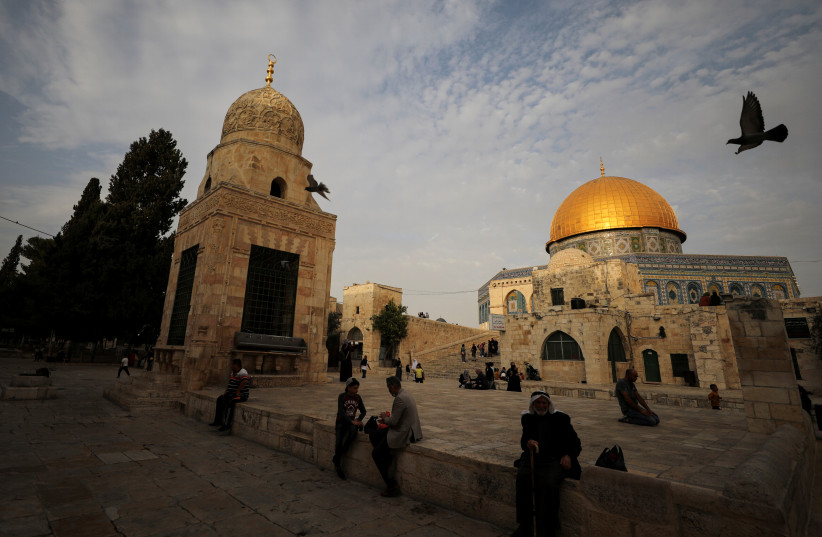Israel will not hold discussions with Jordan about the status quo on the Temple Mount in the coming weeks in light of Amman’s incitement against Israel, a senior Israeli diplomatic official said on Thursday.
The official referred to Jordanian Prime Minister Bisher Al-Khasawneh’s praise for Palestinians who physically attacked Israelis amid rioting on the Temple Mount, and spoke after Jordan submitted a paper to the US calling for Israel to relinquish control of the holy site.
Though Foreign Minister Yair Lapid and Defense Minister Benny Gantz met with Jordanian King Abdullah II ahead of the Muslim month of Ramadan to try to lower tensions, Israel views Jordan as having been obstructive to the aim of bringing calm to Jerusalem in recent weeks, especially in light of Khasawneh’s remarks amid Palestinian rioting when Passover and Ramadan coincided.
As such, Israel does not plan to hold discussions about the Temple Mount with Jordan, the senior diplomatic source said, until a series of potential dates for Palestinian terrorist groups to incite violence in the coming weeks come to an end: the last Friday of Ramadan this week, Independence Day on May 5, Nakba Day on May 15, and Jerusalem Day on May 29.
“We’re not talking about anything other than getting through this time quietly and peacefully,” said the source, adding that Washington did not convey Amman’s demands to Jerusalem, and is trying to reduce tension over the Temple Mount.

Jordan told the US it demands that Israel respect the “historic status quo” at the Temple Mount, the holiest site in Judaism, on top of which al-Aqsa Mosque was built.
Among Jordan’s demands was that Israel end restrictions on the number of staff members from the Jerusalem Islamic Wakf, and put the Wakf in charge of all visits by non-Muslims.
Visits to the Temple Mount have grown more popular among Jews in recent years, with a record 4,625 Jews ascending the holy site during Passover. Jordan views the increased number of visitors as a violation of the status quo.
In addition, small numbers of Jewish visitors have prayed on the Temple Mount, posting videos online of themselves doing so, and bringing journalists along. Lapid and the Prime Minister’s Office have said there is no Israeli policy to allow Jews to pray on the Temple Mount, but that stopping every Jew from silent worship is not possible. The foreign minister also expressed discomfort last week with denying Jews freedom of worship, though he said the status quo would not be changed.
Amman has taken issue with the use of the term “freedom of worship” in the context of the Temple Mount because they see it as implying Jews are allowed to pray there.
By a longstanding agreement, Jordan’s royal family is the custodian of al-Aqsa and exercises that role mostly through the Wakf. When Israel and Jordan made peace in 1994, Israel committed to “respect the present, special role of the Hashemite Kingdom of Jordan in Muslim Holy shrines in Jerusalem.”
When Jordan occupied the Old City of Jerusalem from 1949 to 1967, it did not allow Jews access to the Temple Mount or the Western Wall, despite a formal commitment that it would.
Earlier this month, Khasawneh said he “praises every Palestinian and Jordanian Islamic Wakf worker who stands tall like a turret, and those who throw rocks at the pro-Zionists who are defiling al-Aqsa Mosque while under the security of the Israeli occupation government.”
The Jordanian prime minister also repeated the theory, advanced by the Palestinians and firmly denied by Israel, that the Jewish state plans to divide the Temple Mount into separate spaces and hours for Jews and Muslims as it did in the Tomb of the Patriarchs in Hebron. That theory was used by groups like Hamas and Palestinian Islamic Jihad in the past month to spark riots in Jerusalem.
Reuters contributed to this report.
